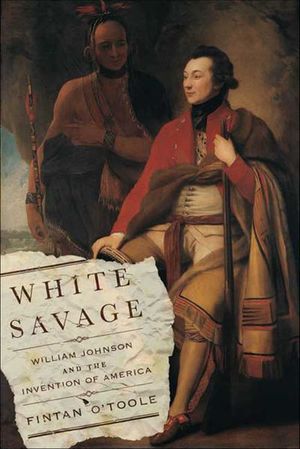White Savage
Published by Farrar, Straus and Giroux
A provocative biography of the man who forged America's alliance with the Iroquois.
William Johnson was scarcely more than a boy when he left Ireland and his Gaelic, Catholic family to become a Protestant in the service of Britain's North American empire. In New York by 1738, Johnson moved to the frontiers along the Mohawk River, where he established himself as a fur trader and eventually became a landowner with vast estates; served as principal British intermediary with the Iroquois Confederacy; commanded British, colonial, and Iroquois forces that defeated the French in the battle of Lake George in 1755; and created the first groups of “rangers,” who fought like Indians and led the way to the Patriots' victories in the Revolution.
As Fintan O'Toole's superbly researched, colorfully dramatic narrative makes clear, the key to Johnson's signal effectiveness was the style in which he lived as a “white savage.” Johnson had two wives, one European, one Mohawk; became fluent in Mohawk; and pioneered the use of Indians as active partners in the making of a new America. O'Toole's masterful use of the extraordinary (often hilariously misspelled) documents written by Irish, Dutch, German, French, and Native American participants in Johnson's drama enlivens the account of this heroic figure's legendary career; it also suggests why Johnson's early multiculturalism unraveled, and why the contradictions of his enterprise created a historical dead end.
“A biography that will enlighten specialists, especially those curious about the Irish roots of Johnson's comfort with split allegiances.” —New York Times
“O'Toole brings together great man history and real analytical rigor; this book should be a winner with academics and history hobbyists alike.” —Publishers Weekly
BUY NOW FROM
COMMUNITY REVIEWS

